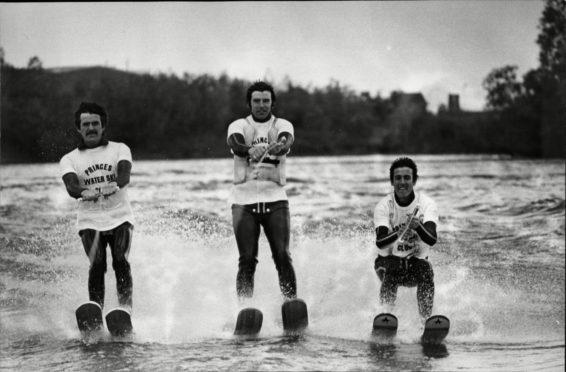A short video clip slipped into my inbox, but I did not take much notice until the penny finally dropped and I realised it was something special.
One of my brothers sent it and, knowing how our mutual sense of humour works, I assumed it was a bizarre social media thing.
A group of old people were having a good time in what looked like an organised institutionalised setting. I thought that any second something daft would happen to make it worthy of Facebook attention.
A runaway giraffe from a local zoo might walk into shot or something like that.
So I opened the link to see more detail. A happy woman in the foreground was blowing kisses straight at the camera. With a big beaming smile she danced to the music and you could tell she was so happy. She was the life and soul of the party in what was obviously an old folks home.
And she was my mum. The sudden realisation hit me like a thunderbolt.
It had not registered in my brain at first because my mother was only recently admitted as a permanent resident at a secure home for dementia patients. It was a bittersweet moment because even although I recognised her instantly, she would not have a clue who I was or her other two sons.
I have described my 88 year-old mum’s mental decline here before, but I felt it was time to update her story.
The video clip only lasted a few seconds, but it had a heartwarming effect which will never fade. Such is the power of song and dance to soothe emotions or even restore fleeting memories locked away in minds ravaged by dementia.
In a slightly geeky way I began analysing this brief musical burst.
It was like something out of Never Mind the Buzzcocks as I conferred with my brother. We concluded that the song was I’ll Be Your Baby Tonight, but not the original Bob Dylan version (now this is getting really geeky).
We both agreed the backing track was a reggae cover version by Robert Palmer and UB40 from 1990, but somebody else was singing it at the nursing home.
It became a bit of an obsession. But it was important to us to know what triggered this wonderful spontaneous reaction in mum. It was as though a lightbulb had been switched on in a world of darkness.
After a little more detective work, my brother discovered the mystery singer was an official entertainer at the home, who runs music and dance sessions for residents. To be fair, he had a nice voice and could carry a tune.
I think this magic moment lifted a huge weight from my brother’s shoulders. With power of attorney over mum’s health and finances he agreed with social workers who felt this was the best place for her. It’s a decision countless people have to make about their loved ones, but I knew it weighed heavy on him despite the fact that it was the right thing to do for her own safety.
But these clouds lifted when she literally found her feet again through dancing. As the entertainments man told my brother: “She can’t stop dancing when the music comes on.”
We must ask him to play anything by The Bachelors, a chart-topping Irish trio from the 60s. She loved her countrymen, and watching her three small boys miming to their hits. Mum might end up dancing on the tables, too, if she heard them.
Something in the lyrics or melody of I’ll Be Your Baby Tonight nudged a memory which had fallen asleep in her mind. I wondered what it was. Could it be subconscious memories of loving feelings for her three boys or our late dad?
Songs always have a personal meaning for people because they remind them of special moments. My thoughts turned to former prima ballerina Marta C Gonzalez and her extraordinary video, which had re-surfaced online at about the same time. She suffered from Alzheimer’s Disease, but when an extract from ballet classic Swan Lake was played slow recognition danced across her mind. And she began making the exact hand and arm movements she performed when dancing the piece at her peak. It was touching and powerful.
How some helpless old people in nursing homes were treated has been exposed brutally by the Covid-19 pandemic, and a day of reckoning looms for UK and Scottish governments.
But my brothers and I breathed a sigh of relief for now as mum seemed to be safe and happy. I am thankful for small mercies.
David Knight is the long-serving former deputy editor of the Press and Journal

